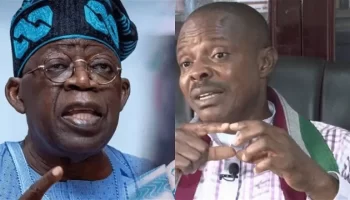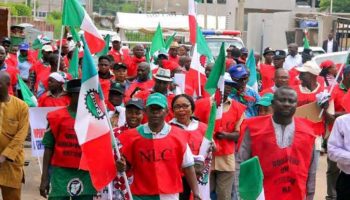FG seeks N12 billion in increased automobile taxes
The N1,000 Proof of Ownership Certificate verification charge that drivers must pay is expected to bring in almost N12 billion for the federal government each year.
Abdulhafiz Toriola, the Lagos Ministry of Transportation’s Permanent Secretary, revealed this last week. He said that by providing this certificate, car owners and the government would be able to monitor car theft and the recovery of stolen vehicles, as well as ensure the integrity of all vehicles listed on the National Vehicle and Identification Scheme database.
He said, “To this end, the Federal Government has introduced the issuance of annual Proof of Ownership Certificate for all registered vehicles.”
According to the National Bureau of Statistics, there were 11.76 million vehicles in Nigeria as of Q2 2018, and the vehicle per population ratio was put at 0.06 for the period. Par various reports, Nigeria imports about 400,000 vehicles annually.
192,287 vehicles were imported into the nation through the Ports & Terminal Multipurpose Limited in the first 10 months of 2021, but only 114,159 vehicles did so in the same time of 2022.
The Proof of Ownership Certificate, according to Toriola, will be used as formal proof of a vehicle’s ownership. “The POC will contain crucial information, including the vehicle’s registration details, such as license plate information, model information, and year of manufacture, in addition to the owner’s name and address,” he said.
“Having critically reviewed the challenges encountered in ensuring the promotion of Safety and Security of lives and property through the issuance of POC nationally and especially in our dear State, the Joint Tax Board, in its communiqué issued at the end of the emergency meeting held on May 9, 2023, adopted, and made a resolution that proof of ownership be issued to motorists on an annual basis nationwide.”
Lagos would start collecting POC fees at the start of July, he added. Other states have not yet disclosed their stances. There have been conflicting reactions to the government’s decision, and Taiwo Oyedele, Fiscal Policy Partner and Africa Tax Leader at PwC, has argued that the tax is backwards-looking, poorly thought out, and badly structured.
He said, in a LinkedIn post, “Apart from the payment which seems to be solely for revenue generation, and perhaps more for non state actors than for the government, it is illogical to have to prove annually that you own a vehicle for which you already have a certificate of proof of ownership issued by the government.”
He noted that the tax adds complications to the myriad of multiple taxes which make doing business difficult and dampens tax morale.
He added, “While this tax will not necessarily stop the earth from rotating, it is wrong both in terms of signalling from a multiple taxation perspective and in terms of timing given the recent fuel subsidy removal.
“To be sensitive and demonstrate empathy, the government should not impose any new or higher taxes on transportation, energy, or food which are the most impacted by the subsidy removal. The same reasons why the recent attempt to collect VAT on diesel needs to be reconsidered.”
Oyedele added that the tax should be removed for the sake of order and to avoid creating a negative precedent.





